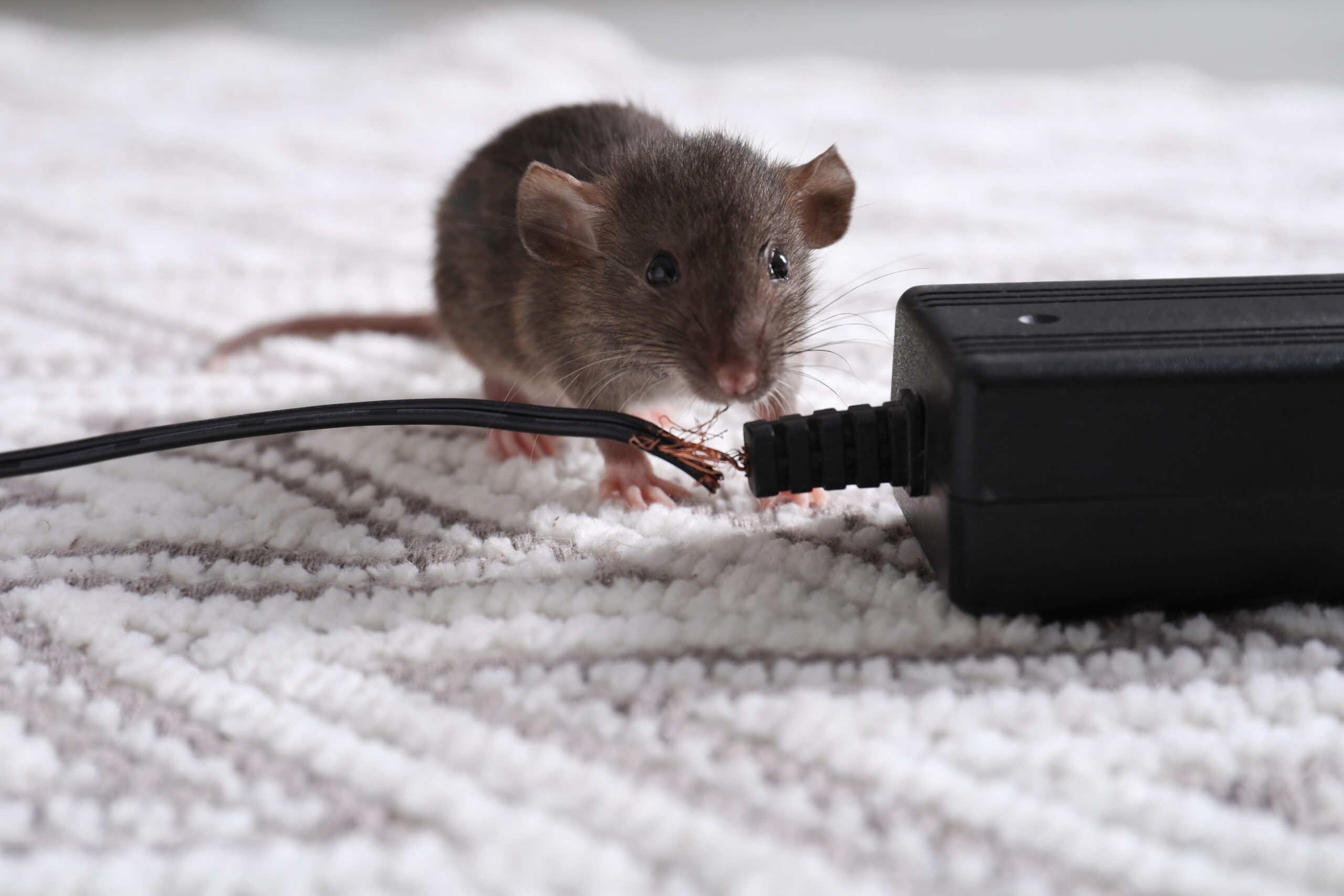How To Prevent Rodents From Invading Your Home — No Cheese Required!
How To Prevent Rodents From Invading Your Home — No Cheese Required!
No pest is a fun presence, but rodents create a certain sense of dread in anyone who has the displeasure of seeing them. Rats and mice have a laundry list of reasons why they are frustrating pests. To name a few: they transmit all kinds of diseases, chew through any household material, contaminate every surface they touch, and reproduce unbelievably fast.
Rodent infestations are pretty standard of big cities, and Chicago is no exception. It’s often at the top of lists with unfortunate names, like the “rattiest cities” or “most rodent-infested cities in the U.S.” The most recent pest-themed list from an established entity continued the tradition by featuring Chicago in a major way. Let’s take a look at the statistics to see why Chicago is still associated with rodents before we dive into the best ways to prevent rodents from invading your home.
The Chicago Stats
The National Pest Management Association (NPMA) recently published their 2024 Vector Sectors list. This bi-annual list details the 10 U.S. cities with the highest risk of vector pest invasions from winter through spring. Vector pests are essentially carriers of diseases that they transmit to humans and animals. Mosquitoes, rodents, ticks, and roaches are the most common vector pests in the country.
The idea behind this list is to educate the public on the correlation between pests and weather conditions, regardless of the season. Warm temperatures and moisture — or a lack thereof — go hand-in-hand as major attractants for vector pests. When they find a place with their favorite conditions, pests will never leave willingly. This results in pest infestations that bring a series of health concerns in addition to the typical frustrations.
On NPMA’s recent Vector Sectors list, Chicago is the first city listed for rodent issues. The main reason for this placement is the city’s combination of a warm autumn last year, low temperatures this year, and a gradual increase in moisture. Rodents invade homes in pursuit of a warm shelter with access to water and food, so the weather patterns continue to drive them indoors this spring. Rodents transmit diseases to humans in a number of ways (droppings, bites, dander, etc.), so preventing rodent infestations is essential for Illinois residents.
Easy Steps To Efficient Rodent Prevention
The idea of preventing rodents is intimidating for many people. After all, how can we possibly stop these hungry pests from chewing their way into our cozy homes? Rest assured, there are plenty of ways to protect your home against rats and mice all year long. All it takes is putting some focus on cleanliness, mild repairs, and food storage. Professional pest control services are always a great option for steady rodent prevention, but more on that later.
For now, these are the most effective ways to prevent rats and mice from claiming your home as their own.
Trash Management
It’s no coincidence that rodents are often found digging around in a loaded garbage can. They love it for the endless food options, so it’s essential to protect your home trash cans from these scavengers. Keep the lids to the cans (both the indoor and outdoor ones) closed at all times, and use strong trash bags to keep the actual garbage protected from pests. Make sure all food scraps and crumbs make it into the trash, especially after a party or large gathering. We also recommend storing your outdoor trash cans at least a few feet away from the house to remove the easy access for any pesky rodents.
Pet Protectors
Turns out, the cartoon stereotypes about dogs and cats hating rodents are true! They may not engage in slapstick comedy while chasing one another (as far as we know), but cats and dogs are pretty effective at keeping rodents away. If you notice your furry friend acting strangely in a certain part of the home, it’s worth investigating the reason. Dogs usually growl, bark, and sniff at an invasive rodent, while cats tend to stay low as they hunt the pest. It’s not the most fun result, but your pet might even catch a rodent that’s trying to sneak in!
Food Storage
This is one of the most important steps in preventing a rodent infestation. Since rodents love our food so much, sealing it off takes away a major attraction for rats and mice. We recommend transferring all opened food into airtight containers with good lids. This includes chips, baked goods, baking essentials, and cereals. Rodents can chew through most food packaging because of their strong teeth, so putting food into glass or acrylic containers is actually effective at keeping pests out of your groceries.
Garden Care
If you have a produce-filled garden, you know the importance of protecting the greens from determined pests — including rodents. Any stray fruits and vegetables are easy food sources for rodents, especially if the produce is already rotting. Make sure to harvest all of your produce on time, especially in the warmer months. Dispose of any rotten fruits and vegetables in a trash can to prevent rodents from flocking to your garden for the unguarded crops. Also, remove any weeds sprouting around your plants to make it as unappealing to pests as possible.
Entry Points
These are basically the spots on a house or building that are big enough to let pests inside. Cracks and holes naturally develop in our infrastructure over time, so you can never be too careful about looking for these gaps. Rodents can squeeze through some pretty tight spaces; rats fit into holes half an inch wide, and mice are even more flexible by fitting through gaps a quarter of an inch wide. Inspect your house’s exterior regularly for any cracks and holes, especially around doors, windows, and pipes. Fill these imperfections with waterproof caulk, and stuff larger gaps with steel wool to protect them from these pests’ strong teeth.
Yard Work
When a yard is overgrown, rats and mice have even more hiding spots than usual. They live in tall grass and dense brush when they can’t get indoors, so keeping a trimmed yard is an efficient way to remove their nearby habitat. Remove weeds from all around the plants and bushes, and trim back everything at least one foot from the house. If any tree branches touch the house, cut them back to remove the highway access for rodents. Also, mowing the lawn on a regular basis stops these pests from hiding within the tall blades.
Pet Food
Your dog or cat already goes through their food at an impressive rate, so the last thing you need is a family of rodents chowing down on the expensive food! Rodents love dry pet food because it gives them the nutrients they need to have enough energy for scavenging. Clean up your pet’s eating area after each meal by removing stray food pieces and putting their dish away. We recommend storing the bag of food in a large airtight container, like a clean lidded trash can. This protects the food from any pesky rodents and ensures that your furry friends get the full meals they deserve.
Gutters
It’s easy to forget about the gutters and downspouts on our homes until there’s a problem. But keeping clean gutters is important for several reasons, one of which is preventing rodents from nestling inside the natural debris that clogs the gutters. The excessive moisture and increased elevation appeal to rodents in every season. There are a couple options here. One is to clean the gutters yourself, which we suggest doing carefully by wearing durable gloves and having someone assist you. The other is to hire a professional to clear out the gutters, and it might be worth it if your house’s gutters could use some attention.
Look & Listen
Don’t underestimate the significance of using your own senses to detect a possible rodent issue. These nocturnal pests aren’t the quietest critters by a long shot, as they produce constant noise to communicate and scavenge near their nests. If you hear any weird sounds from inside the walls — scratching, scurrying, and squeaking — you might have rodents. This is even more likely if you find physical evidence of an infestation, including shredded papers (for their nests), teeth marks, and droppings. And if a rat or mouse makes an appearance during the day, it’s usually a sign that there are many more hidden away somewhere.
Pointe Knows Illinois Rodents
When you need rodent control, Pointe Pest Control is here to serve you. Our dedicated team has years of experience in analyzing and treating Illinois rodent infestations. We begin every service with a full inspection of the property to ensure we find all areas of pest activity. After using our findings to create a treatment plan customized to target your pest problems, we treat all impacted areas to eliminate current pests and prevent future ones. Our team is happy to address any questions and concerns you have throughout the process. We look forward to keeping your home rodent-free, so contact us to learn more about our reliable services today!
Citations
Joerndt, A. (2024, February 27). Warm weather trends signal potential upswing in disease-carrying pests, NPMA reports. Pest Control Technology. Available at https://www.pctonline.com/news/warm-weather-trends-signal-potential-upswing-in-disease-carrying-pests-npma-reports/ (Accessed on February 27, 2024).
Municipal rodent management. (n.d.). Illinois Department of Public Health. Retrieved February 28, 2024, from https://dph.illinois.gov/topics-services/environmental-health-protection/structural-pest-control/municipal-rodent-management.html
Zito, B. (2023, October 4). What is the best way to prevent a rat infestation?. Forbes Home. Available at https://www.forbes.com/home-improvement/pest-control/prevent-a-rat-infestation/ (Accessed on February 28, 2024).
Request a Free Quote Today
(We do not share your data with anybody, and only use it for its intended purpose)




